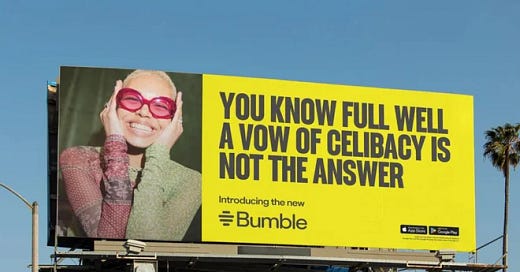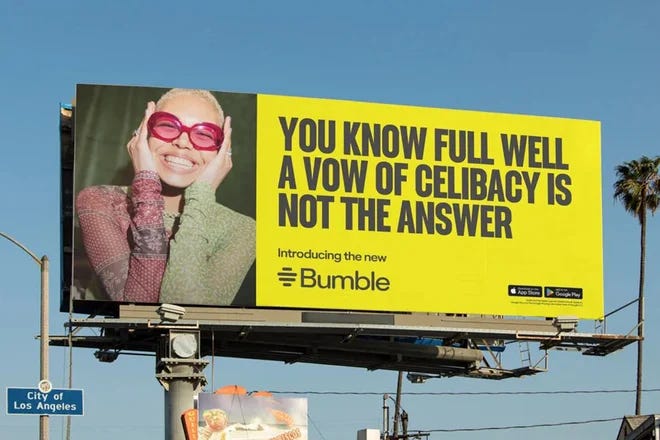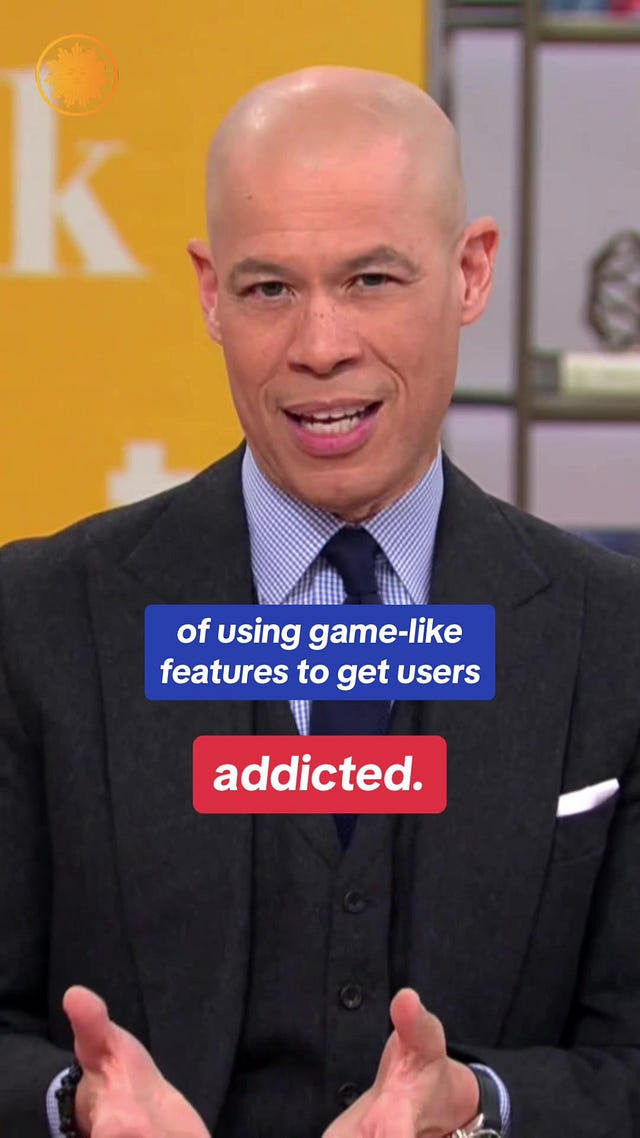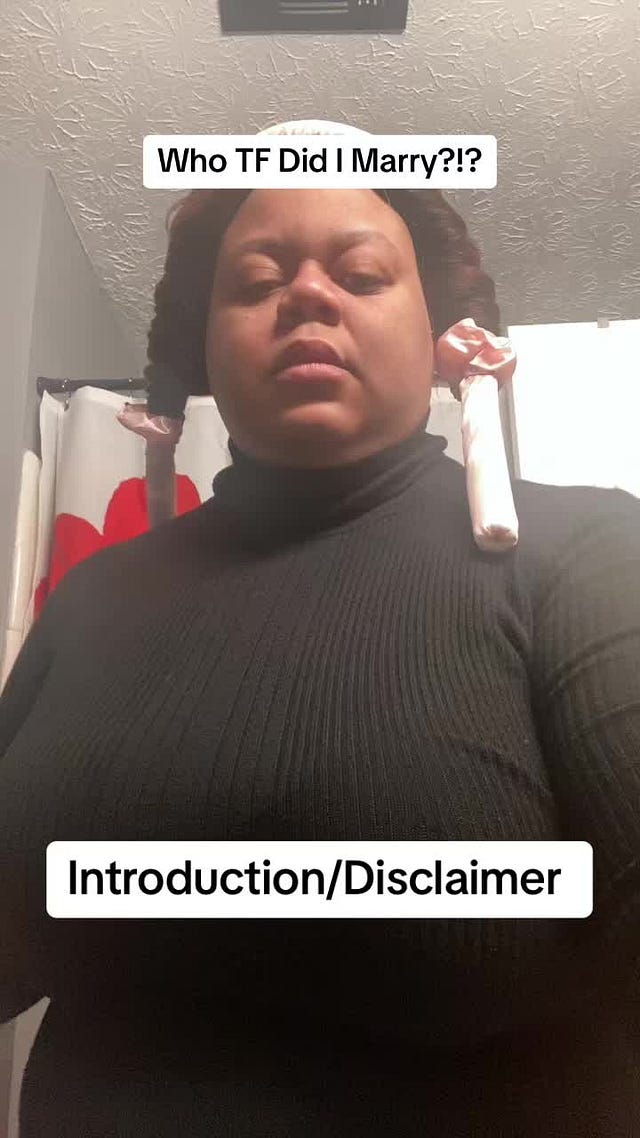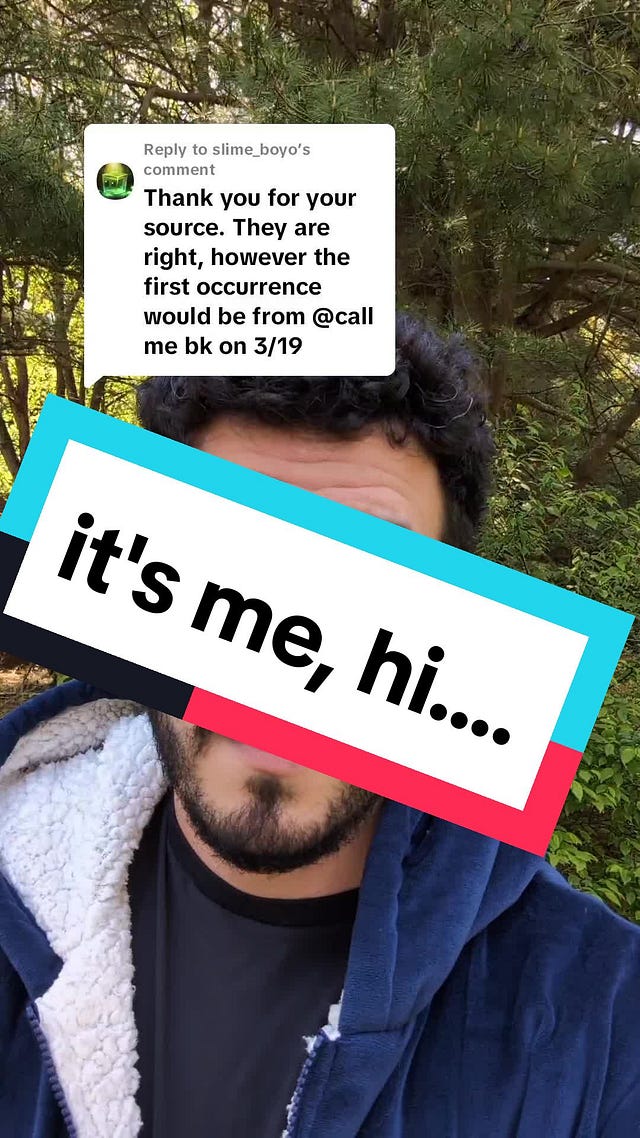The Great Bumble Fumble-AdGate And Why Women’s Autonomy Matters
So, here’s the breakdown–Bumble has placed questionable billboards around the world.
Well, it’s a not-so-happy Monday. As nights grow longer and flowers bloom, some hope that romance might soon follow suit. But of course, not at the expense of safety (or sanity). So it seems, Bumble has not gotten the memo, and has decided that in the year of 2024, their advertising is going to tell women what to do with their bodies.
This week, billboards across the world emerged depicting images of happy women and couples paired with Bumble’s signature yellow logo. The slogans read “You Know Full Well A Vow of Celibacy Is Not The Answer” and “Thou Shalt Not Give Up On Dating And Become A Nun.”
 Tiktok failed to load.
Tiktok failed to load.Enable 3rd party cookies or use another browser
These ads were likely born from the ongoing Western recognition of South Korea’s “4B movement.” The movement is indeed a vow of celibacy on behalf of women protesting extreme gender based violence and discrimination, and takes its name from four Korean words that begin with the letter b. The “b’s” refer to refusing heterosexual marriage (“bihon”), childbirth (“bichulsan”), dating (“biyeonae”) and sex (“bisekseu”).
The ongoing criticism of contemporary dating culture is largely being led by Gen Z’s crusade against dating apps, both in the U.S. and worldwide. While occasionally the decline in app culture has led to positive changes and newfound communities found in bookstores, running clubs, chess clubs, and more, the anti-app movement is also rooted in much more serious issues. The war on dating apps is not born from bitter singles–but a combination of crimes, cheating scandals, and data that has led to an ongoing lawsuit.

 Tiktok failed to load.
Tiktok failed to load.Enable 3rd party cookies or use another browser
The lawsuit, filed in San Francisco this past Valentine’s Day, was brought by six plaintiffs against Match Group, the parent company of Tinder and Hinge. The primary allegation against the apps was that they “gamify” dating. The suit reads that the apps work "to transform users into gamblers locked in a search for psychological rewards that Match makes elusive on purpose." The elusivity in question is only solved by premium membership opportunities that offer the potential to meet “the one.”
And yet separate of these two dating giants once emerged a compelling competitor, Bumble. The app allows for female identifying users to message male matches first, supposedly cutting out unsolicited advances from men and promoting safer dating opportunities. While the message-first capability creates the illusion that women using the dating app have the pick of the litter, the app remains wracked with a myriad of other issues that threaten their reputation.
In the past several years alone, several murder and kidnapping cases involving women meeting men on Bumble received national news attention. A woman named J.W. was kidnapped, beaten, and tortured for five days by Zachary Kent Mills after she agreed to meet him for a date following a Bumble match.
In 2022, a 23-year-old woman named Lauren Smith Fields was found murdered in her Bridgeport, Connecticut home after going on a Bumble date with an unnamed 37 year old white male. The case remains under investigation, with Fields’ family alleging that the man is the killer.
Outside of violent crime, thousands of women continue to take to TikTok to share their dating horror stories, complete with catfishing, cheating, lying, health scares, and more. The caution surrounding dating apps was heightened further when earlier this year, a woman named Reesa (@reesamteesa) shared a lengthy video series regarding the layers of deception that her ex husband put her through. Had she not done her own investigating, Reesa would have likely ended up in financial and health crises entirely of his volition.
 Tiktok failed to load.
Tiktok failed to load.Enable 3rd party cookies or use another browser
The ongoing discussion surrounding gender based violence was recently piqued through the viral “man vs. bear” debate on TikTok as well, in which women unanimously answer that they would rather be alone in the woods with a bear than a man. The arguments for this reasoning range from avoiding potential sexual abuse to the bear having the ability to move through nature peacefully and not prey on them. Among notable quotes are “I wouldn’t have to see the bear at family reunions.”
 Tiktok failed to load.
Tiktok failed to load.Enable 3rd party cookies or use another browser
To tack on another layer that may go into a woman’s choice to remain celibate, Roe v. Wade was overturned at a national level in June of 2022. This left reproductive rights to be decided by individual U.S. states, with a number of states opting to criminalize abortion and several birth control methods, some even regardless of health conditions like endometriosis or rape.
 Tiktok failed to load.
Tiktok failed to load.Enable 3rd party cookies or use another browser
Needless to say, a woman’s choice to be celibate could be born from a number of factors. These could be personal trauma, health issues, caution due to the ongoing repression of reproductive rights, or maybe she’s just selective. Regardless of the reason, it should be the people’s CHOICE. This is what Bumble’s billboards disregarded–the autonomy of women’s bodies that women have been fighting for for centuries, and the ongoing conversation within the digital culture space. If I might say so myself, Bumble has indeed fumbled.

